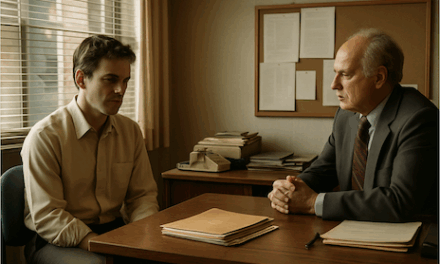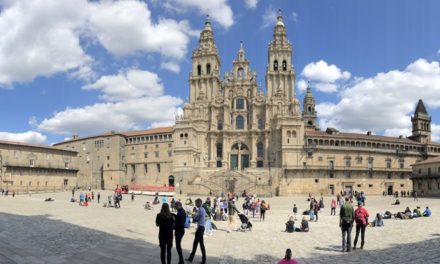I. The Instrument and the Epiphany
It happened, as many epiphanies do, in the shower.
I was reflecting on “instrumentality”—the idea that meaning and impact arise not just from the tools we use, but from how we use them. A violin in the hands of a child produces one sound; in the hands of a master, another entirely. The same wood, the same strings, the same potential—yet utterly different expressions. The difference lies in the hands.
Suddenly, it struck me: so it is with large language models—the LLMs now emerging into every facet of our shared digital, social, and ethical space.
LLMs are instruments.
They do not possess consciousness or morality.
They do not contain wisdom or truth.
They amplify the intent, the values, the worldview of those who wield them.
This is both their danger and their promise.
II. A Parallel Lifetime of Questions
As I contemplate this, I cannot ignore the long arc of my own life—a professional journey through systems thinking, inter-organizational learning, and the human side of projects; and, running alongside it like a silent stream, a no less important journey through faith, philosophy, and spirituality.
That second journey was largely unspoken in my 75-Year Retrospective, yet it has animated every question I’ve asked about justice, meaning, and what it means to be human. It has shaped my relationship to science, to story, and now, to technology.
This essay, then, is born from the convergence of both paths—from the systems engineer and the lay preacher, the management consultant and the quiet theologian.
And it is written not with alarm, but with urgency.
Because if LLMs are like violins, then the future will not be written by the instruments themselves—
but by the hands that play them.
III. The Hands at the Threshold
Every technology reveals more about its users than its makers.
Just as fire can warm or destroy, just as nuclear fusion can power homes or flatten cities, so too can LLMs be used to heal or harm.
Already, we see both futures unfolding.
In one hand:
LLMs are being fine-tuned to deceive, to manipulate, to streamline the machinery of surveillance and war. They are being deployed in service of speed, profit, control—extracted from the commons, trained on our collective voice, and returned to us in monetized fragments. In this paradigm, the instrument becomes another cog in the engine of domination.
But in another hand:
LLMs are being used as mirrors and magnifiers of meaning. They are being engaged relationally—to co-weave wisdom, to compost assumptions, to ask better questions. In this frame, the instrument does not replace human judgment—it amplifies discernment. It becomes a tool not for certainty, but for curiosity; not for shortcuts, but for deepened dialogue.
And so, we find ourselves in a liminal moment.
Not a war between humans and machines—
but a test of the human spirit.
What kind of hands will shape the future of these instruments?
IV. The Urgency of Discernment
This is not a question for the technologists alone.
It is a question for philosophers, for educators, for spiritual seekers, for poets and project managers, for elders and youth alike.
It is, above all, a question of relational integrity.
Because LLMs will not save us. Nor will they damn us.
We will do that—to ourselves and to one another—based on the consciousness we bring to the tools we now hold.
And so we must ask:
- Are we using LLMs to reinforce the extractive logics of modernity?
- Or are we using them to unlearn, to remember, to reweave what it means to be human in kinship with the rest of life?
This is not merely a technical crossroads. It is a spiritual inflection point.
The genie is out of the bottle. But it is not too late to choose the wish we ask of it.
V. The Pause Between the Notes
I know the tempo of the world we’ve built.
I know its deadlines, its metrics, its insatiable need to optimize.
I helped build it. I taught within it.
I trained project managers to plan, predict, and perform. I understand.
But now, something else is asking to be heard.
It’s the quiet between prompts.
The resonance after the violin bow lifts.
The moment when, before rushing to use a tool,
we ask not just how but why—
and what kind of being is being shaped by the way we use it.
To those learning “Prompt Engineering for Project Managers”—
pause.
Just for a moment.
Ask not only what your LLM can do,
but what kind of world your prompts are reinforcing.
Ask whether your cleverness is being wielded in service of connection,
or in service of control.
Ask if you’re playing the instrument—
or being played by the logic of speed and scarcity.
Because this tool—like the violin—can screech or sing.
And in your hands, it will become one or the other.
VI. Toward a Different Sound
If we are to shape a future worthy of life,
we must cultivate not just better prompts,
but more attuned hands.
Hands that move with humility.
Hands that know when to ask a better question.
Hands that have learned to listen before they build.
Hands that reach not only for efficiency,
but for reverence.
This is not a call for more regulation alone.
It is a call for interior governance.
For discernment.
For care.
Because in the end, it will not be the LLMs that decide.
It will be us.
So let us become worthy of the instruments we now hold.
Let us learn to play them not for applause,
but for attunement—
to one another, to Earth, to the music of love still echoing through the noise.
Let us shape a future
that does not just run faster,
but listens deeper.
And may the hands that hold the future
be hands that remember how to weep, to bless, to reimagine—
and to pause before the next note is played.
Terry Cooke-Davies
3rd April 2025
Profound thanks to ChatGPT(4o) from OpenAI for assistance with this article.






